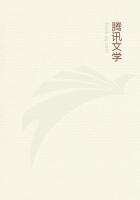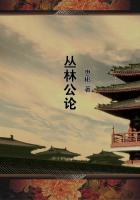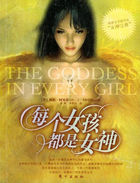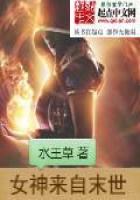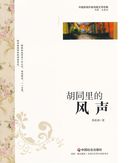'what did the fight come from?' From abusive language, because this was the origin of the fight.-(3) From the compound of matter and shape, as the parts come from the whole, and the verse from the Iliad, and the stones from the house; (in every such case the whole is a compound of matter and shape,) for the shape is the end, and only that which attains an end is complete.-(4) As the form from its part, e.g. man from 'two-footed'and syllable from 'letter'; for this is a different sense from that in which the statue comes from bronze; for the composite substance comes from the sensible matter, but the form also comes from the matter of the form.-Some things, then, are said to come from something else in these senses; but (5) others are so described if one of these senses is applicable to a part of that other thing; e.g. the child comes from its father and mother, and plants come from the earth, because they come from a part of those things.-(6) It means coming after a thing in time, e.g. night comes from day and storm from fine weather, because the one comes after the other. Of these things some are so described because they admit of change into one another, as in the cases now mentioned; some merely because they are successive in time, e.g. the voyage took place 'from'
the equinox, because it took place after the equinox, and the festival of the Thargelia comes 'from' the Dionysia, because after the Dionysia.
25
'Part' means (1) (a) that into which a quantum can in any way be divided; for that which is taken from a quantum qua quantum is always called a part of it, e.g. two is called in a sense a part of three. It means (b), of the parts in the first sense, only those which measure the whole; this is why two, though in one sense it is, in another is not, called a part of three.-(2) The elements into which a kind might be divided apart from the quantity are also called parts of it; for which reason we say the species are parts of the genus.-(3) The elements into which a whole is divided, or of which it consists-the 'whole' meaning either the form or that which has the form; e.g. of the bronze sphere or of the bronze cube both the bronze-i.e. the matter in which the form is-and the characteristic angle are parts.-(4) The elements in the definition which explains a thing are also parts of the whole; this is why the genus is called a part of the species, though in another sense the species is part of the genus.
26
'A whole' means (1) that from which is absent none of the parts of which it is said to be naturally a whole, and (2) that which so contains the things it contains that they form a unity; and this in two senses-either as being each severally one single thing, or as making up the unity between them. For (a) that which is true of a whole class and is said to hold good as a whole (which implies that it is a kind whole) is true of a whole in the sense that it contains many things by being predicated of each, and by all of them, e.g. man, horse, god, being severally one single thing, because all are living things. But (b) the continuous and limited is a whole, when it is a unity consisting of several parts, especially if they are present only potentially, but, failing this, even if they are present actually.
Of these things themselves, those which are so by nature are wholes in a higher degree than those which are so by art, as we said in the case of unity also, wholeness being in fact a sort of oneness.
Again (3) of quanta that have a beginning and a middle and an end, those to which the position does not make a difference are called totals, and those to which it does, wholes. Those which admit of both descriptions are both wholes and totals. These are the things whose nature remains the same after transposition, but whose form does not, e.g. wax or a coat; they are called both wholes and totals; for they have both characteristics. Water and all liquids and number are called totals, but 'the whole number' or 'the whole water' one does not speak of, except by an extension of meaning. To things, to which qua one the term 'total' is applied, the term 'all' is applied when they are treated as separate; 'this total number,' 'all these units.'
27
It is not any chance quantitative thing that can be said to be 'mutilated'; it must be a whole as well as divisible. For not only is two not 'mutilated' if one of the two ones is taken away (for the part removed by mutilation is never equal to the remainder), but in general no number is thus mutilated; for it is also necessary that the essence remain; if a cup is mutilated, it must still be a cup; but the number is no longer the same. Further, even if things consist of unlike parts, not even these things can all be said to be mutilated, for in a sense a number has unlike parts (e.g. two and three) as well as like; but in general of the things to which their position makes no difference, e.g. water or fire, none can be mutilated; to be mutilated, things must be such as in virtue of their essence have a certain position. Again, they must be continuous; for a musical scale consists of unlike parts and has position, but cannot become mutilated. Besides, not even the things that are wholes are mutilated by the privation of any part. For the parts removed must be neither those which determine the essence nor any chance parts, irrespective of their position; e.g. a cup is not mutilated if it is bored through, but only if the handle or a projecting part is removed, and a man is mutilated not if the flesh or the spleen is removed, but if an extremity is, and that not every extremity but one which when completely removed cannot grow again. Therefore baldness is not a mutilation.
28



